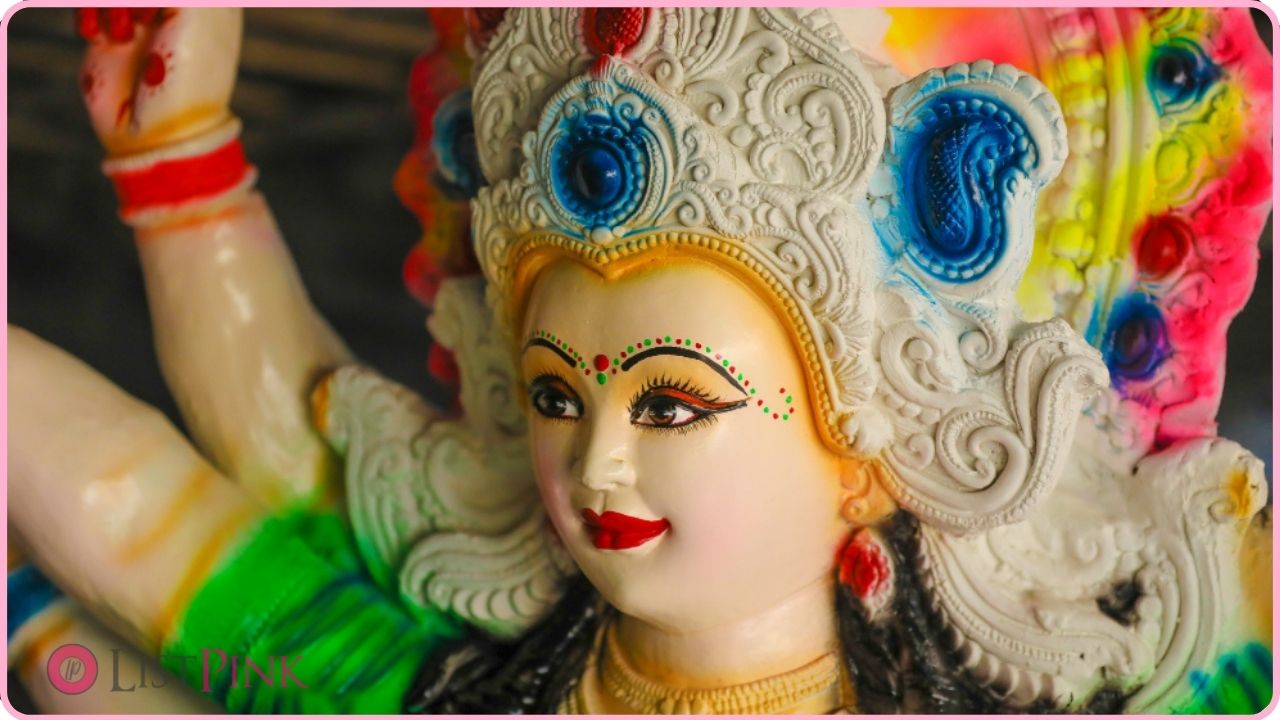Are tattoos a sin? The answer to this question depends on what religion you follow. Even within the same religion, different sects see tattoos differently. For instance, in Islam, the majority Sunni Muslims consider tattoos as ‘Haraam’ (strictly forbidden). The minority Shiite sect, however, considers tattoos as ‘Jaiz’, which means allowed.
Are Tattoos a Sin? Which Religion Says What?
Because a lot of people are curious if their faith allows them to get a tattoo, at ListPink we thought we should dive into the topic and find out which religion, sect considers tattoos a sin, and which ones allow them.
1. Tattoos According to Christianity

The Christian view of tattoos is not a simple one. While the general view of tattoos is negative, there is some disagreement about this matter.
In the book of Leviticus, God commands the Israelites in Leviticus 19:28:
Do not cut your bodies for the dead or put tattoo marks on yourself. I am the LORD.
Christians have interpreted this verse to mean that tattoos are sinful because they disfigure the body. This conclusion is based upon the belief that Leviticus 19:28 was not given for the purpose of restricting personal freedom. Rather, it was given because of the idolatrous practice of some to cut themselves and to tattoo themselves as a form of worship to the dead.
It was for this reason that God forbade the Israelites from practicing such a disfiguring practice. While Christians do not believe that this verse prohibits the tattooing of animals, they do believe that it prohibits the tattooing of humans.
In addition to the above, some Christians believe that the tattooing of the body is a form of self-mutilation, and as such, it is sinful. Some Christians believe that the idea of a tattoo is sinful, but the actual tattooing process is not. They believe that if the tattoo is removed, that there is nothing sinful about it.
2. Are Tattoos Prohibited in Islam?

Islamic scholars have issued several opinions on the matter of tattoos. Many Islamic scholars forbid tattoos because they are similar to adornment, which is forbidden for men in Islam. Tattoos are also forbidden because they are painful and disfiguring, and are therefore similar to mutilation. Islamic scholars have applied this prohibition to both men and women because both are commanded to dress modestly.
The prohibition is based on the verse of the Qur’an which states:
Say to the believing men that they should lower their gaze and guard their modesty: that will make for greater purity for them: and Allah is well acquainted with all that they do. And say to the believing women that they should lower their gaze and guard their modesty; that they should not display their beauty and ornaments except what (must ordinarily) appear thereof; that they should draw their veils over their bosoms (Sura 24:30-31).
Some Islamic scholars allowed the wearing of tattoos on the skin that is not normally exposed, and therefore not required to be covered. Others argued that the pain that is involved in getting a tattoo is worse than the pain involved in removing it.
The Islamic scholar and philosopher Al-Ghazali (died 1111 CE) held that although tattoos are not forbidden, they are not recommended either.
He writes:
But it is better and more conducive to health to be without tattoos because all excessive and superfluous adornment is prohibited by religious law, as well as by the law of nature.
When it comes to Islam, there are opposing views about wearing tattoos. The Sunni Islam, which, in fact, is the majority sect considers tattoos as strictly prohibited.
While there is still a difference of opinions among various Sunni scholars regarding the ruling on tattoos, but the most correct opinion according to the sect is that they are prohibited (haraam).
The minority Shiite sect thinks that hadiths prohibit tattoos, but they are too weak to be relied upon. The Prophet (PBUH) did not prohibit tattoos. In fact, there is one hadith that says that the Prophet (PBUH) had a tattoo on his hand.
It is also noteworthy that the Arabic word for a tattoo, khatna, comes from the root KTHY, which means to cut or to scratch. Thus, it is not a skin-deep word and it does not have negative connotations.
3. Tattoos According to Judaism

Tattoos are not mentioned anywhere in the Torah. However, there is a strong consensus in the Jewish community that they are not permitted. The reason for this is that it is prohibited to disfigure one’s body, and a tattoo is a disfigurement.
Although this matter is not discussed in the Torah, this is not a new idea. It is well-known from Jewish sources that one may not deliberately disfigure oneself in any way. In the Talmud, Rabbi Shlomo Yitzchaki (Rashi) explains that tattoos are forbidden on account of the pain involved in getting them done:
The Avnei Nezer (a 19-century Lithuanian Halachic code) says that it is forbidden to tattoo a rabbit or a dog. Rabbis such as the Tzemach Tzedek (a 19th-century Rabbi in Russia) and the Radbaz (Rabbi David Ben Zimra, a rabbi and Talmudic scholar in Egypt in the 17th century) have agreed that tattoos are forbidden for this reason.
Rabbi Moshe Feinstein (a 20th-century American-born Orthodox Rabbi) was asked about a man who had a tattoo. He replied that although it would not be a problem to do so, it is better not to get a tattoo since it is not required, and it is better not to have a tattoo. He added that the prohibition only applies to permanent tattoos and not to temporary ones.
According to Rabbi Shlomo Zalman Auerbach (a 20th-century Rabbi from Jerusalem), tattoos are forbidden because they are a kind of mutilation. He also quotes the above sources and writes that the reason for the prohibition is the pain that is involved.
A similar reason is given by Rabbi Eliezer Waldenberg (a 20th-century American-born Rabbi). However, he adds that it is difficult to be strict about this matter, since we live in an age of technological advancement, and it is not possible to be stringent about many matters in this way.
Rabbi Aryeh Auerbach (a 20th-century Rabbi from Jerusalem) quotes the above sources and adds that it is forbidden to disfigure oneself in any way. He also says that one should not get a tattoo. The rabbi points out that it is not really permanent since the tattoo can fade with time. He adds that it is difficult to explain the prohibition of tattoos on a scientific level since it is permitted to disfigure oneself for medical reasons.
The Chazon Ish (a 20th-century Rabbi from Israel) says that it is not correct to get a tattoo. He quotes the sources above and adds that it is forbidden to tattoo animals.
Rabbi Yitzhak HaLevi Herzog (the late chief Rabbi of Israel) says that it is forbidden to tattoo a person. He adds that the reason for this is that it is a kind of mutilation. A similar ruling is given by Rabbi Yehuda Henkin (a contemporary American-born Rabbi).
4. Are Tattoos Prohibited in Hinduism?

Tattoos are not explicitly forbidden in Hindu scriptures. However, they are discouraged because they are considered to be a form of body modification. This is because the Hindu philosophy is based on the belief that the human body is a divine gift, and thus should be left as it was originally created. Therefore, Hindus believe that the human body should not be modified in any way. In one of the Hindu Puranas (scriptures), it is written:
“If the body is covered with scars and incisions, it is no longer called the divine instrument, but a human body. Similarly, if the tongue is filled with bilious matter, the result is speech that is vulgar and obscene. Therefore, do not mar the body, which is the abode of the Atman (soul)…”
There is a popular Hindu myth about the origin of tattoos. It is said that the god of love, Kama, shot some of his magic arrows at Shiva, the god of destruction. Shiva became angry at this, and he tore off a piece of his own skin and wrapped it around his left hand so that he could catch the arrows without being harmed.
When the Kama saw this, he let out a laugh that was so strong that it caused the drops of blood from his mouth to transform into a bow and several arrows. Hindus believe that tattoos originated from this myth.
So, what do you think? Are there any logical reasons that you think might make tattooing an act of sin?
